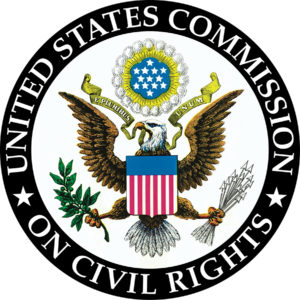The U.S. Civil Rights Commission has denounced new state “religious liberty” laws backed by Southern Baptist state conventions as a trend to use religion as an excuse to deny people their human rights.
The independent, bipartisan agency charged with advising the President and Congress on civil rights matters said in a statement April 18 that North Carolina’s HB 2, which blocks local governments from adopting anti-discrimination policies that protect LGBTQ individuals, and Mississippi HB 1523, which allows people with “religious objections” to deny wedding services to same-sex couples, are part of “a larger, alarming trend to limit the civil rights of a class of people using religious beliefs as the excuse.”
Debate over both laws divided religious communities, with individuals and groups in the conservative Southern Baptist Convention saying the legalization of same-sex marriage poses new threats to religious liberty and moderates identified with the Cooperative Baptist Fellowship saying it’s possible to protect the religious freedom of Christians without causing harm to someone else.
The civil rights panel said similar laws that were passed by legislatures but vetoed by governors in Georgia and Virginia — as well as a Tennessee law allowing mental health professionals to deny counseling services to gays and lesbians, and a move in Kansas to make it harder for transgender persons to change the sex listed on their birth certificate — could violate federal laws.
The commission promised to soon release a report spelling out how religious exemptions to such laws infringe on civil rights.
“Religious freedom is an important foundation of our nation,” said commission chairman Martin Castro. “However, in the past, ‘religious liberty’ has been used to block racial integration and anti-discrimination laws.”
“Those past efforts failed and this new attempt to revive an old evasive tactic should be rejected as well,” Castro said. “The North Carolina and Mississippi laws, and similar legislation proposed in other states, perverts the meaning of religious liberty and perpetuates homophobia, transphobia, marginalizes the transgender and gay community and has no place in our society.”
Two of the commission’s eight members filed a dissenting opinion saying they neither supported nor opposed the particular measures but thought the majority’s condemnation was too strong.
“Those that deal with religious liberty issues are not merely using religion as a ‘guise’ or ‘excuse’ as the commission majority alleges,” said commissioners Gail Heriot and Peter Kirsanow. “All of them address real issues in reasonable ways; none is simply an attack on the LGBT community.”

